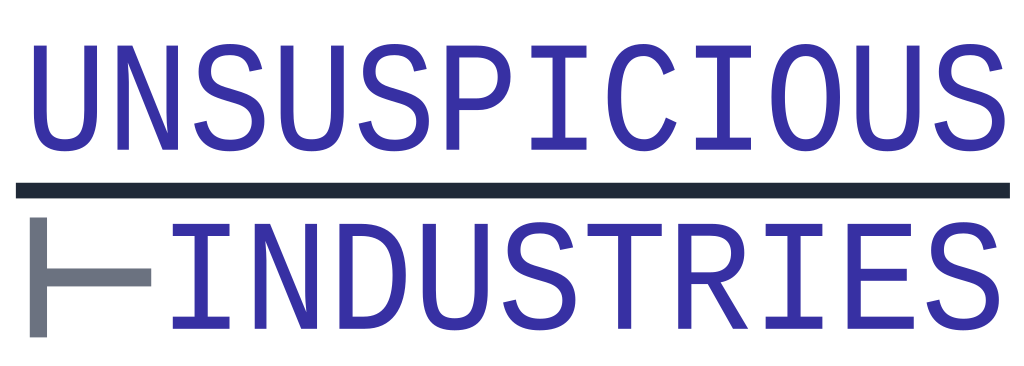Advancing Human knowledge through stochastic epistemology
Forging formal methods with informal vibes
Unsuspicious Industries operates at the convergence of theoretical computer science, machine learning, and complex systems. Our research spans from λ-calculus and interaction combinators to Large Language Models and molecular dynamics. We pursue fundamental questions in type systems, proof synthesis, and the computational limits of knowability.
Research Divisions
Multidisciplinary Curiosity
Six core research areas that define our institutional mission and scholarly contributions
Dynamic Formal Systems
Investigating interaction combinators, optimal reduction strategies, and System F type theory. Current research focused on guided program and proof synthesis through a lot of typing.
philosophy courses should teach how to use proof assistants
Axiomatic Elaboration Laboratory
Finding good and beautiful bases for rational thinking. We explore the world to find coherence outside of rationality. Grounding technology in vibes.
Ethics and æsthetics are one
Artificial Intelligence Research
Training transformer architectures with formal constraints. Exploring the intersection of probabilistic reasoning and symbolic AI through type-theoretic frameworks and proof-carrying code generation.
To build machines that think,
we must first build machines that compute what cannot be thought.
Macroeconomics Formalisation Department
Rewriting advanced economics research using High Performance Computing and formal systems. Modelling emergent market behavior from first principles. Formalising structural social shifts in topological spaces.
In the long run we are all dead.
Computational Biology Division
Understanding the nature of consciousness through pluridisciplinary approaches and distributed compute. The Happy Fly™ project: virtualizing 10¹⁶ Drosophila neurons using interaction net architectures.
I think I might have been stupid in some respects,
if it weren’t for my psychedelic experiences.
LSH research division
The "Lettres et Sciences Humaines" division explores beauty, art and philosophy towards a deeper understanding of humanity's ever-lasting quest of the divine. Thinking hard and slowly, sometimes on acid.
Kant et la monade de l’aporie : une poésie de l’impératif
Unsuspicious research stats
Academic impact
Working overtime on edge research
Research Opportunities
